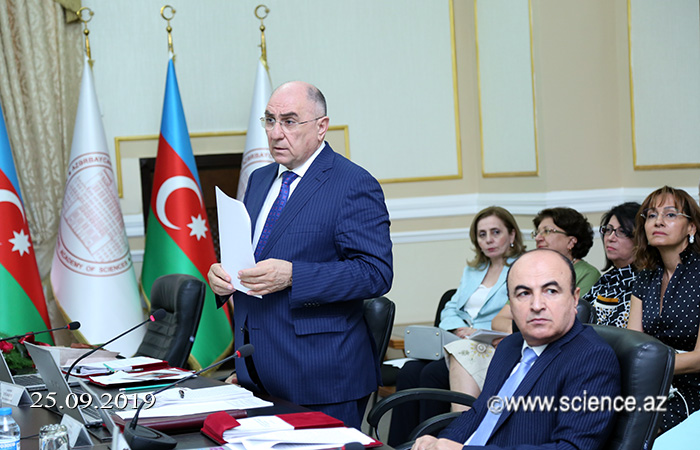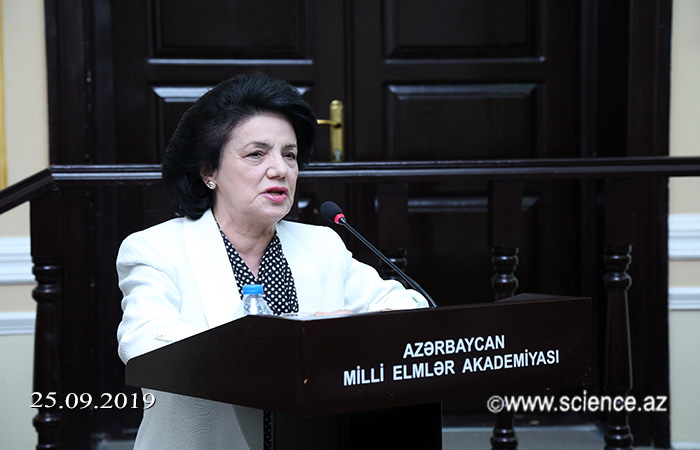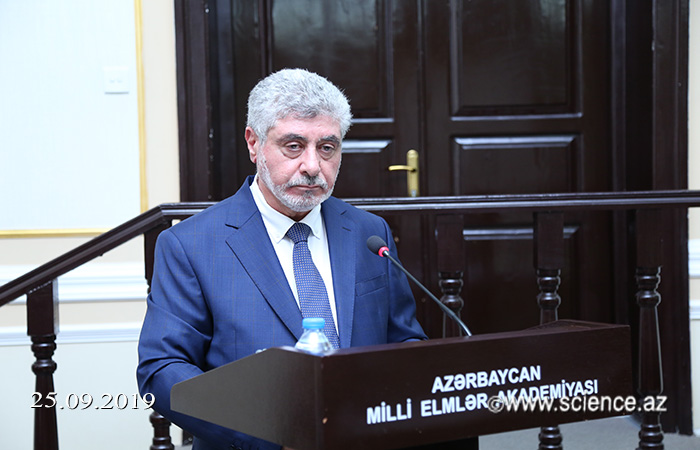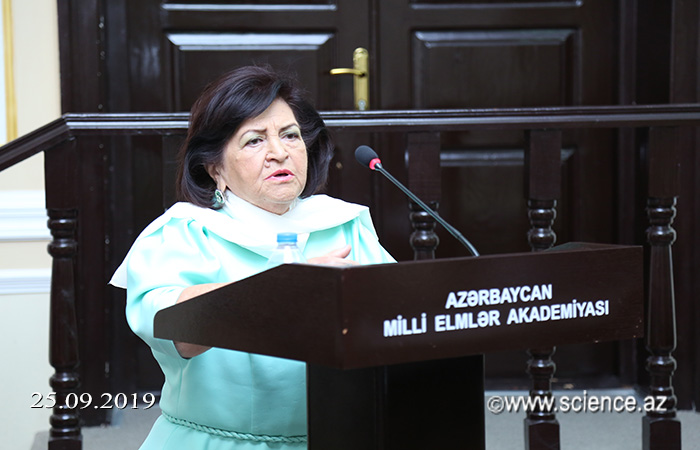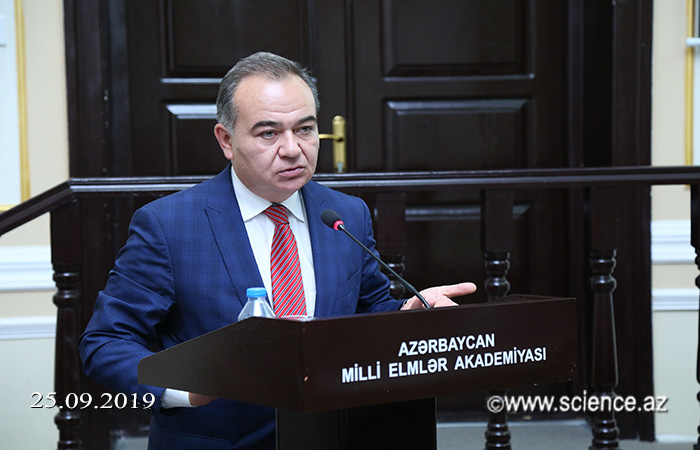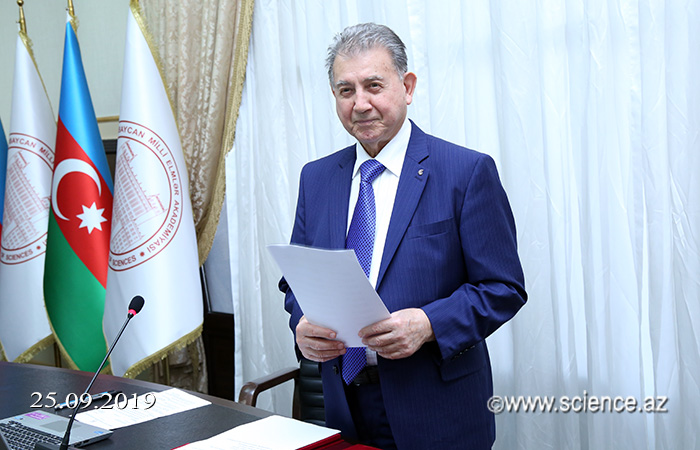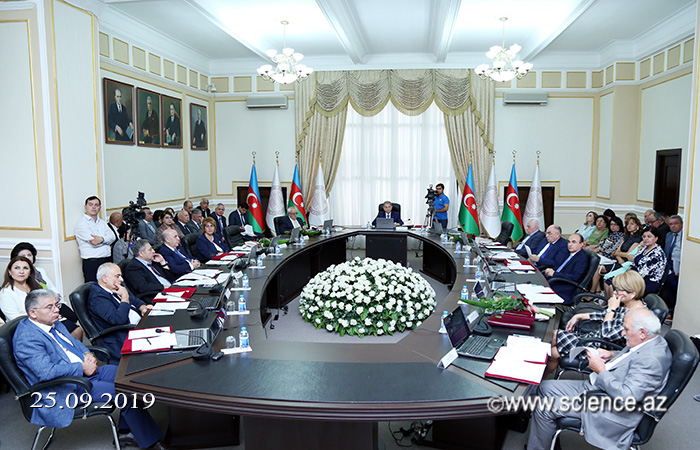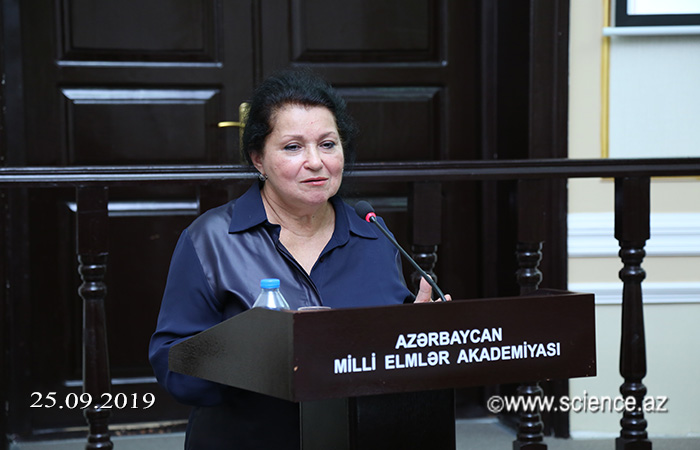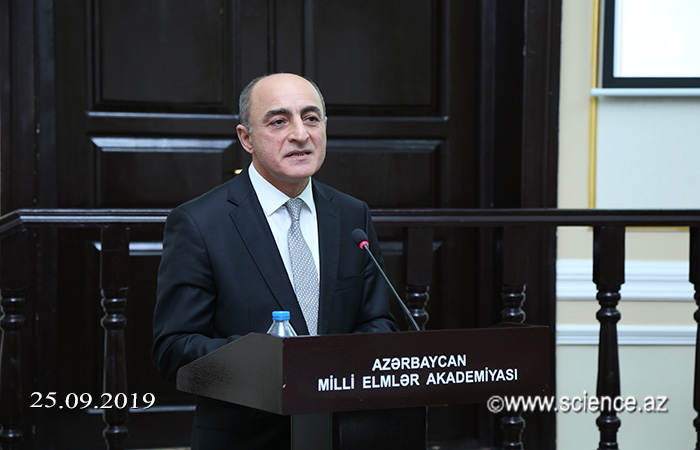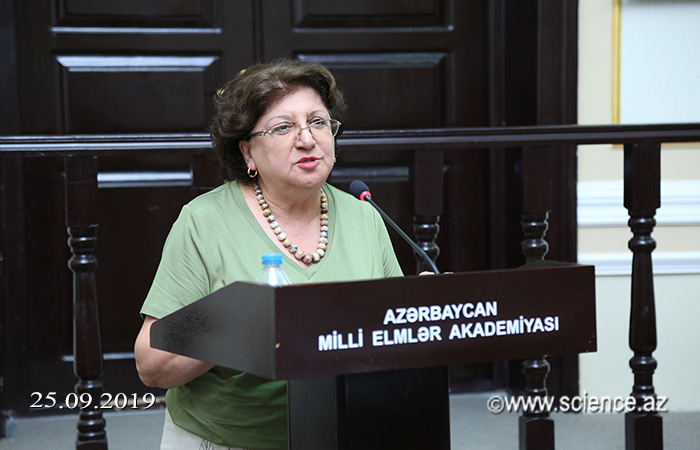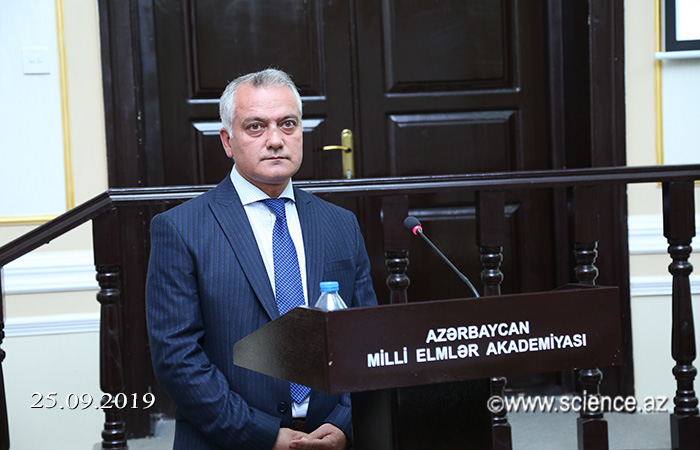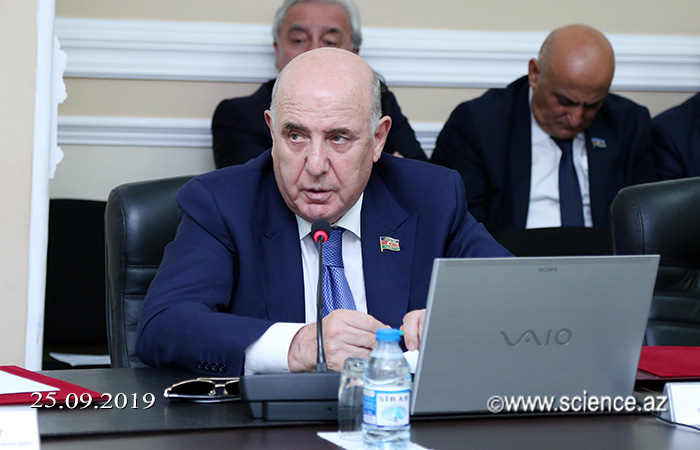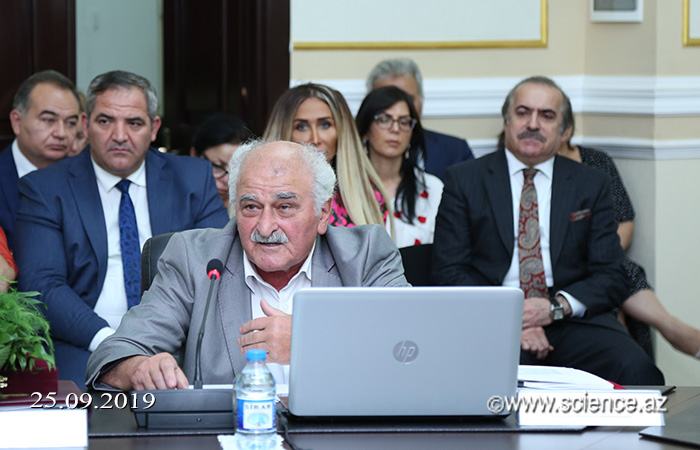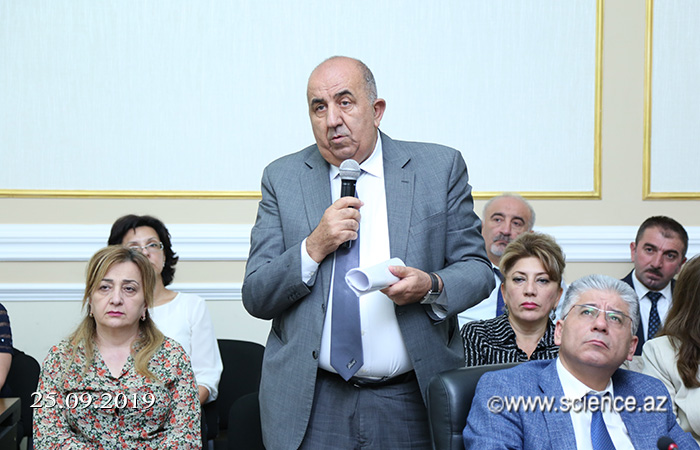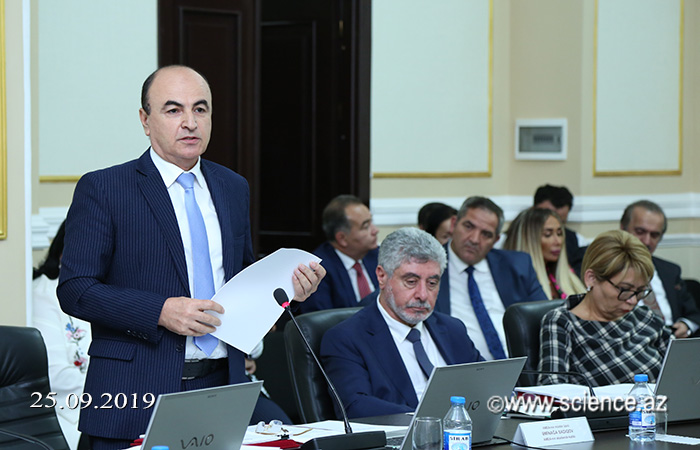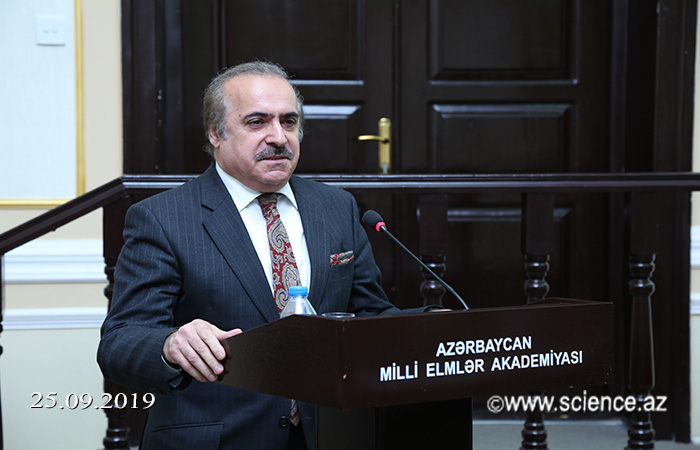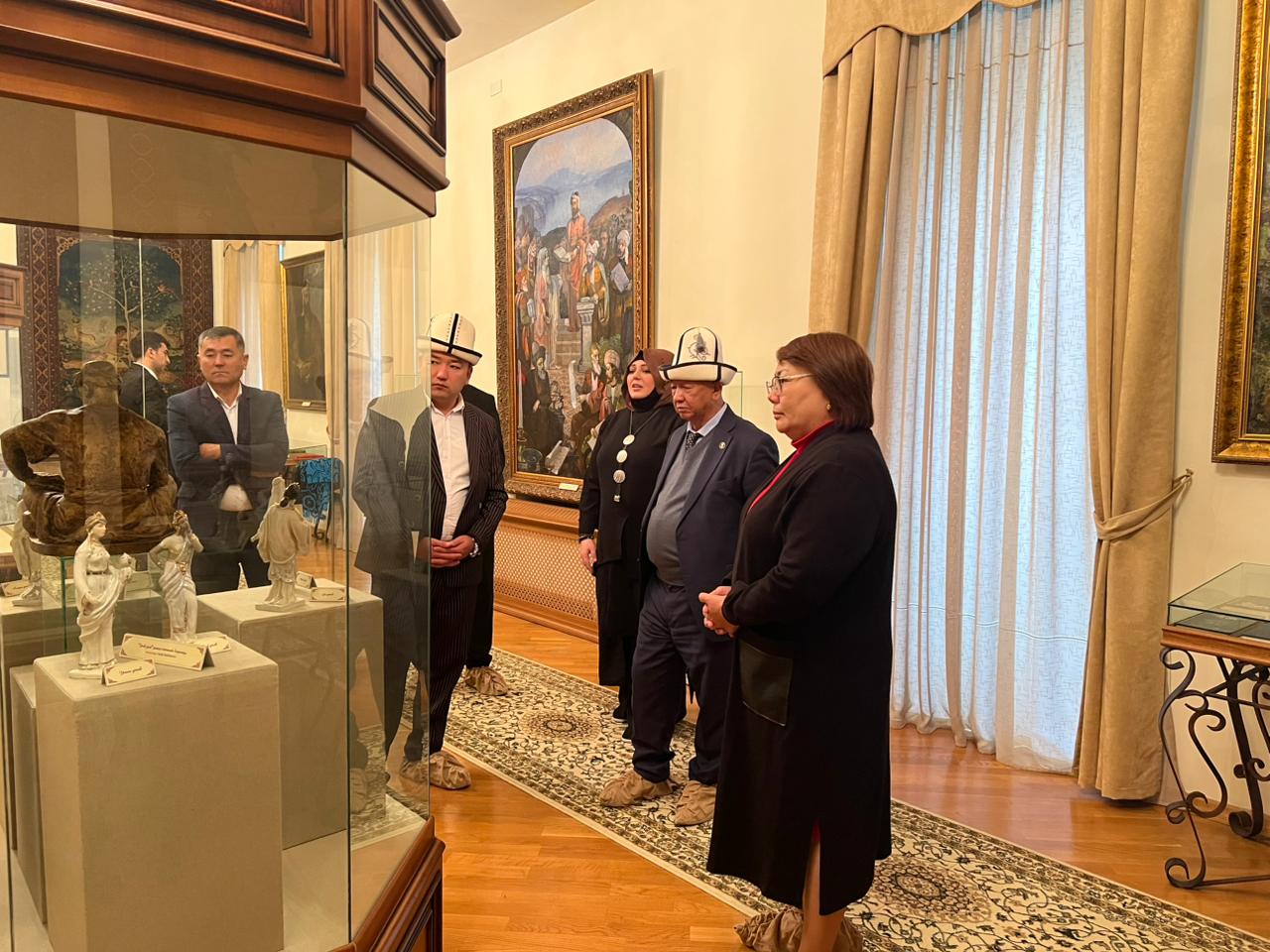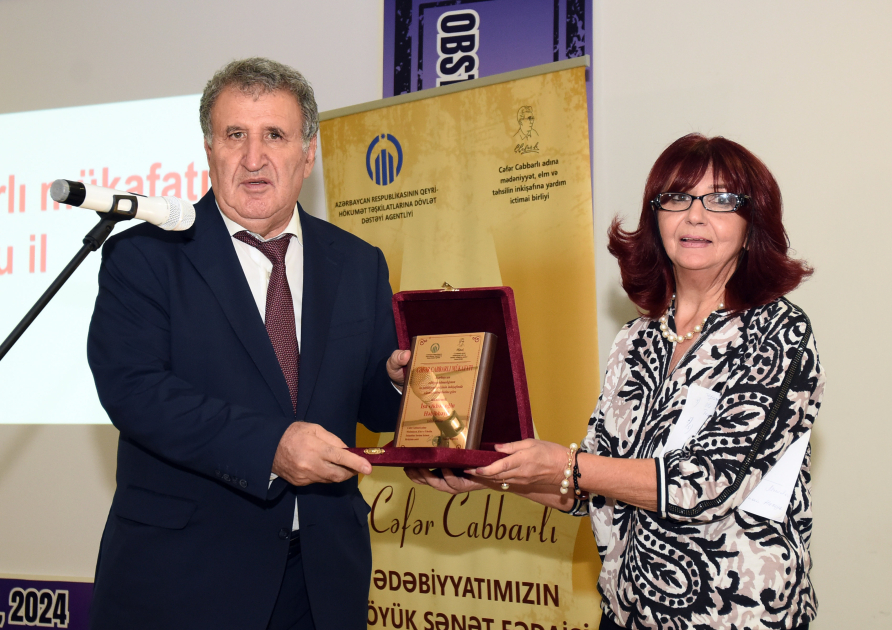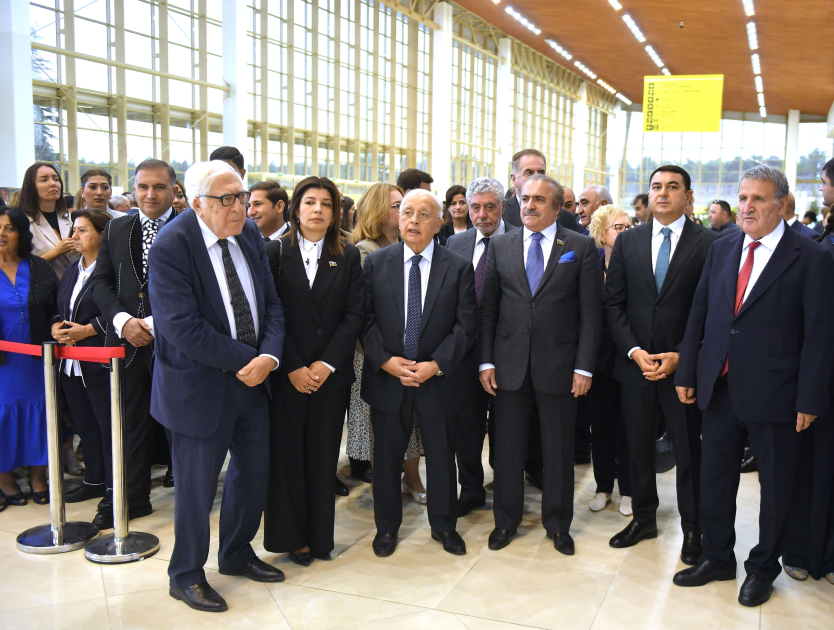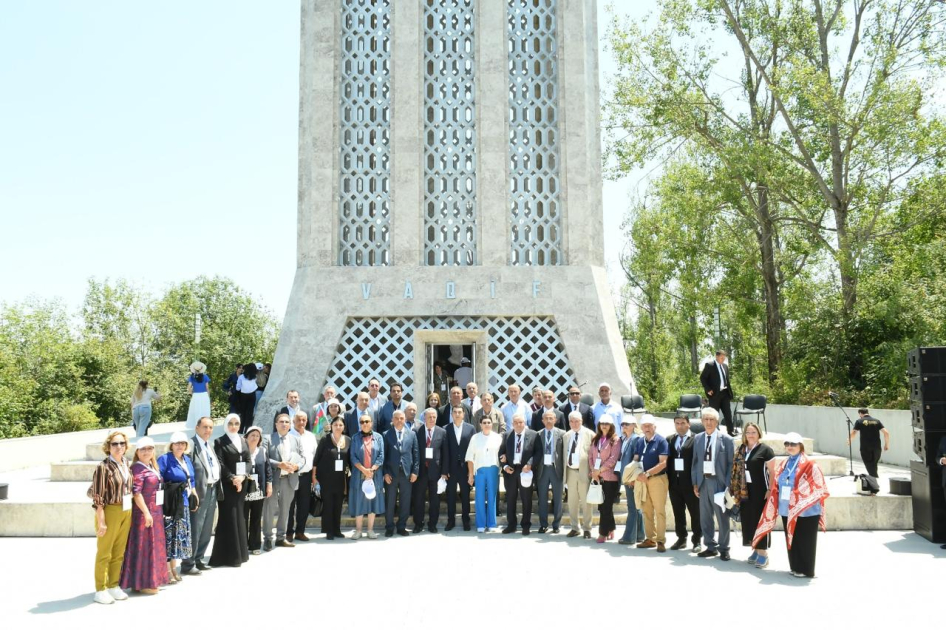- A-
- A
- A+
Delivered a lecture on “Azerbaijani mugham as a means of national and human identity”
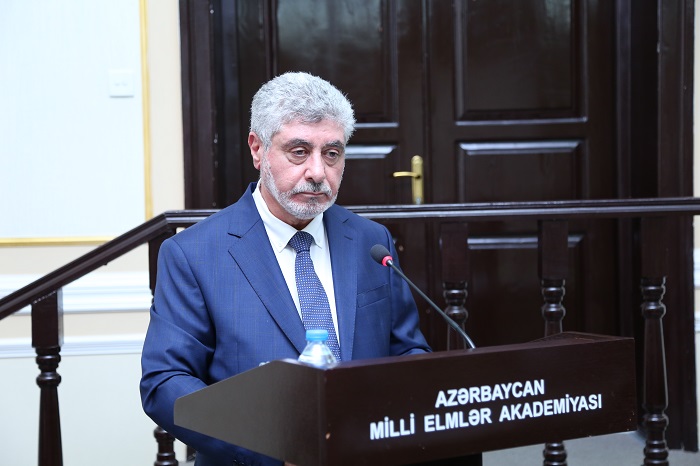
On September 25, a meeting of the Presidium was held at the Azerbaijan National Academy of Sciences.
Academician Teymur Kerimli, academic secretary of the Division of Humanitarian Sciences of ANAS, made a lecture on “Azerbaijani mugham as a means of national and human identity”. The lecture highlights the recognition of the Azerbaijani mugham as a music brand, particularly its current role in the consolidation of our national statehood, as an important factor in national identity. It was stated that the perfect structure of mugam's style and text structure can determine the impact of mugham on the listener's role in the patriotic upbringing of the younger generation.
Academician Teymur Kerimli said that, this phenomenon of world music is not only national-regional but also human-global. He stressed out that there is no doubt that one of the most appropriate means of preserving our national mentality is that of mugam, its text and melody, as the challenges of globalization have become more and more intense. The dominance of patriotic ideas in the poetic text of mugham further enhances its power. T. Kerimli also noted that, Azerbaijani mugham has two great branches called democratic and elite. According to him, these two goals differ not only because of the number of performers and listeners and their social composition, but also because of the poetic meaning and image of the mugham text. Genres, which can be referred to as bayati, aghi, okhshama, holavar, etc., whose texts are formed mainly by the bayati of popular genres of oral folk literature. Their awareness of traditional rhythm shows that they were born on the basis of mugham. The classical mugam is mainly elite, played by those who know professional music and poetry at a professional level. The texts used in this mugam are also elitist. In classical mugam, this function is performed by poets in various forms of the lyrical genre, mostly poetic examples of love, and in the foreground is undoubtedly occur ghazals, he added.
The most widely used ghazals in Azerbaijani mugham as poetical texts were taken from the love theme in Muhammed Fuzuli's creativity, and this tragedy has continued from XVI century up today.
Saying that the establishment of the Soviet regime in Azerbaijan has led to a decline in mugam art, as well as in many fields, academician Teymur Kerimli noted that under the influence of the Bolshevik ideology, the singers used melodies and strings to sing mugham songs in the spirit of folk literature. At that time, there were poets who wrote ghazals, adhering to classical traditions such as Aliaga Vahid who are inseparably linked to mugham.
After listening the lecture, it was discussed by academicians – Rasim Alguliyev, Ahliman Amiraslanov, Vagif Farzaliyev, Rafael Huseynov, Vagif Abbasov, Zemfira Safarova, corresponding member of ANAS Firangiz Alizade and professor Nazim Imanov who shared their opinions and suggestions.
Lecture was approved by the decision of the Presidium of ANAS.
Moreover, it was decided to hold an international symposium on “Azerbaijani mugham in the context of world music” within the “Mugham Festival” together with Heydar Aliyev Centter, organize National Mugham Center joint with ANAS and International Mugham Center due to improve mugham study, teach subject "Fundamentals of Azerbaijani mugham" in secondary and higher educational institutions joint with Ministry of Education of the Republic of Azerbaijan, develop programs and websites dedicated to Azerbaijani mugham in virtual environment, globally promote it in several languages, training of young musicians in the direction of music therapy (mugam therapy) and a number of other issues.
©All rights are reserved. Citing to www.science.gov.az is necessary upon using news.

 Elm TV
Elm TV
 Photo
Photo
 Video
Video
